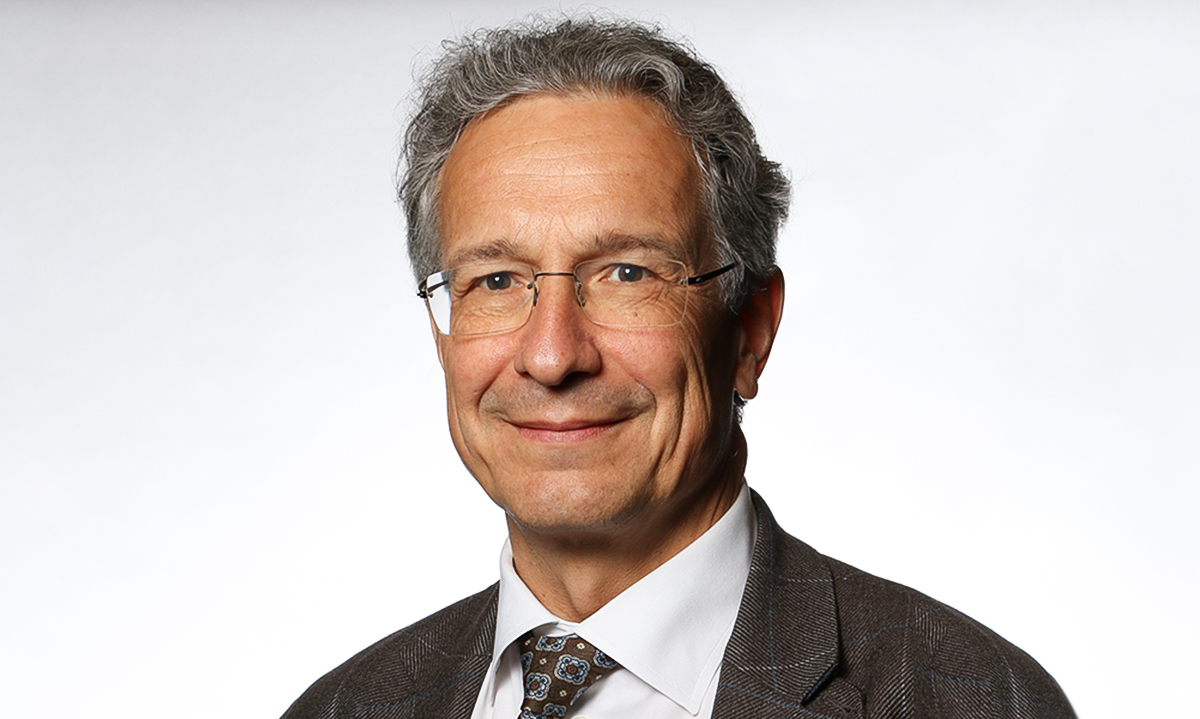Thomas Pieber, Professor and Head of the Division of Endocrinology and Diabetology, Medical University of Graz, Austria is receiving the European Foundation for the Study of Diabetes (EFSD) and Novo Nordisk Foundation Precision Diabetes Medicine Award.
The Award was established to celebrate the 100th anniversary of the discovery of insulin and is given to support outstanding researchers demonstrating potential to spark significant innovations in the treatment of people with diabetes.
This is exactly the research Thomas Pieber carries out: for 30 years, he has focused his career on both improving the treatment of people with type 1 diabetes and seeking a cure.
The award includes DKK 2 million for the winning project, which will be presented at the Future of Precision Medicine Symposium in Copenhagen on 22nd and 23rd November 2021.
Minimising catheter change for people using insulin pumps
Thomas Pieber’s project involves developing the next generation of precision therapies for type 1 diabetes.
For many people with type 1 diabetes, the insulin pump is an integral part of their daily lives. It controls blood glucose by administering insulin, the hormone that helps move glucose from the blood into the body’s cells.
For people using insulin pumps, catheters are required to connect the insulin pump to the body. With current pumps, these catheters must be replaced every 2–3 days to maintain correct insulin dosing. Changing catheters can be especially painful for children, and the process is expensive for healthcare systems and society.
However, by measuring the resistance of the tissue at the catheter site to insulin infusion, Thomas Pieber has already demonstrated that catheter replacement can often be extended to 7 days or more.
Thomas Pieber has already patented this discovery. Building on this, in a project motivating the Award, Prof Pieber will undertake a clinical trial that determines the performance of a pump that integrates the patented technology. The new pump not only measures blood glucose and administers insulin, but also assesses how resistant the tissue is to the insulin infusion. By doing so, the pump will tell the user when to replace the catheter, potentially extending the time between catheter changes by several days. For people with type 1 diabetes, this has the potential to substantially reduce discomfort and burden, while also reducing health care costs.
“The catheters must be replaced to ensure that the person receives the required dose of insulin. The trial will measure both the tissue’s resistance to and uptake of insulin, using microbiopsies and various advanced techniques to investigate protein expression in the tissue as well as other parameters. The trial will also advance knowledge on what happens in the tissue when the need to change the catheter arises. The Award is important because it enables us to investigate and validate how the pump should be calibrated in the future,” says Thomas Pieber.
Many articles but always focused on patients
The research project is just the latest in Thomas Pieber’s long and successful career. Through his research, prof. Pieber has developed and tested various therapeutic concepts for people with both type 1 and type 2 diabetes.
In addition to his involvement at the Medical University of Graz, Thomas Pieber is also Director of the Institute of Biomedicine and Health Science at Joanneum Research in Graz and the founder of CBmed, a competence centre for biomarker research.
Despite publishing more than 450 articles and leading major clinical projects, Thomas Pieber mentions that one of his greatest achievements came very early in his career when he helped implement a modern programme for managing people with type 1 diabetes in Austria’s healthcare system. The National Health Service in the United Kingdom adopted and implemented this programme, which has resulted in more precise treatment of people with type 1 diabetes in both countries.
“My greatest interest has always been to improve the outcomes for patients. This applies both to developing new types of medicine, but also to clinical trials to improve the daily lives of people who use an insulin pump,” says Thomas Pieber.
DKK 0.5 million to 2 runner ups
In addition to Thomas Pieber, two runners up will receive DKK 0.5 million for their projects:
Caroline Bonner, PhD, a Group Leader at Institut Pasteur de Lille, France, for the project Glucagon Secretion and Action in the Pathogenesis of Iatrogenic Hypoglycaemia in HNF1A-MODY.
HNF1A-MODY (Maturity-Onset-Diabetes-of-the-Young) is a type of diabetes characterized by mutations in HNF1A, which leads to a slowly progressive disorder resulting in beta-cell failure and hyperglycemia.
In the project, Caroline Bonner and her colleagues will investigate the effects of HNF1A deficiency on pancreatic islet and intestinal cellular function with regards to glucose transport and hormone secretion. They will also compare the chronic effect of sulfonylureas treatment vs. GLP1R agonists in islets and intestinal organoids lacking HNF1A. Prof. Bonner expect these findings to contribute to the design of large clinical studies to define the best treatment option for these, often young, patients.
Charlotte Ling, a professor and group leader at Lund University Diabetes Centre, Sweden, is the other runner up. She will receive DKK 0.5 million for the project Epigenetic Biomarkers for Precision Medicine in Type 2 Diabetes.
In previous research, prof. Ling has identified blood-based epigenetic biomarkers that could discriminate between responders/non-responders to the medicine metformin in drug-naïve patients with type 2 diabetes. Alternative drugs should be prescribed to patients with type 2 diabetes in case of non-response to metformin.
In the project Charlotte Ling will further develop the epigenetic tool to help patients with type 2 diabetes receive an optimal therapy with better control of blood glucose.








